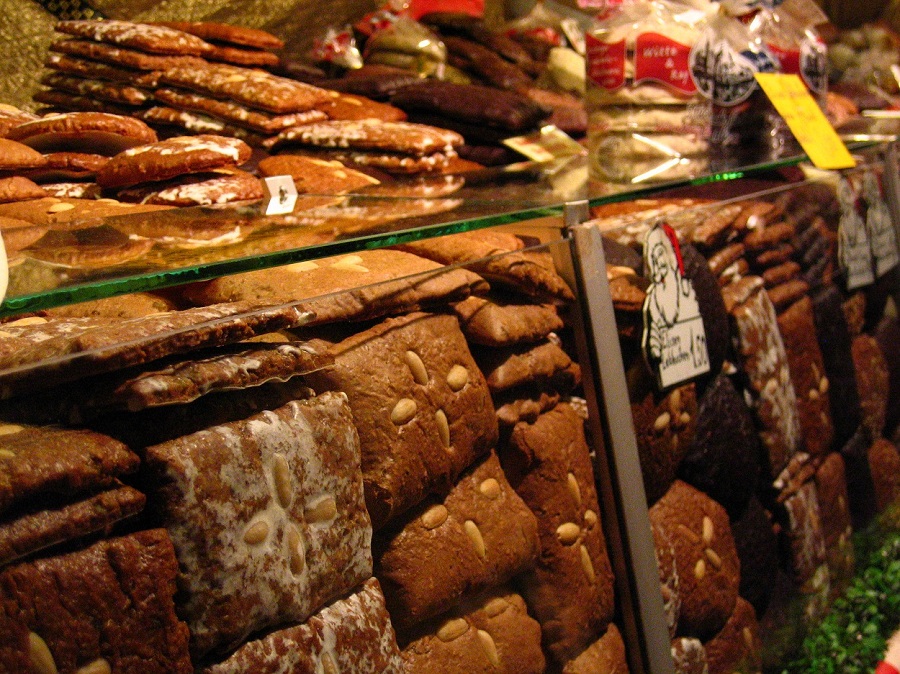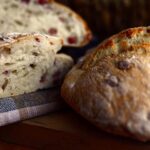
The city of Nuremberg, nestled in the heart of Bavaria, Germany, is renowned for many things, but perhaps none so delightful as its Lebkuchen. These traditional German gingerbread cookies, known for their rich spices and intricate designs, have been a cornerstone of Nuremberg’s culinary culture for centuries.
Historical Roots of Lebkuchen
The origins of Lebkuchen date back to the Middle Ages, with the earliest records from the 13th century. Nuremberg, due to its location on key trade routes, had access to exotic spices from the East, which were integral in creating the distinct Lebkuchen flavors. These spices, combined with honey, nuts, and other ingredients, formed a confectionery that was not only delicious but also believed to have medicinal properties.
What Makes Nuremberg Lebkuchen Special?
Nuremberg Lebkuchen stands apart from other gingerbread varieties due to its unique blend of spices, including cinnamon, cloves, and allspice, and its often soft, cake-like texture. Protected by European law, true Nuremberg Lebkuchen (Nürnberger Lebkuchen) must be produced within the city’s boundaries. The combination of a centuries-old recipe and the strict geographical indication ensures that each bite carries a piece of Nuremberg’s history and tradition.
Varieties and Flavors
There are several types of Nuremberg Lebkuchen, each offering a unique taste experience:
- Elisenlebkuchen: Considered the finest variety, containing a high percentage of almonds and hazelnuts.
- Oblatenlebkuchen: These are baked on a thin wafer, similar to a communion wafer, to prevent sticking to the baking sheet.
- Chocolate Covered Lebkuchen: A modern twist, these are dipped in dark, milk, or white chocolate.
- Glazed Lebkuchen: Topped with a light sugar glaze, offering a sweet contrast to the spicy cookie.
Lebkuchen and German Christmas Markets
Lebkuchen is synonymous with German Christmas markets, especially Nuremberg’s Christkindlesmarkt, one of the oldest and most famous in the world. Here, amidst the festive stalls, Lebkuchen is sold in decorative tins and boxes, often heart-shaped or adorned with colorful icing, making them popular souvenirs and gifts.
Cooking at Home: Lebkuchen Recipes
Baking Lebkuchen at home allows for a personal touch. The basic ingredients include honey, flour, sugar, eggs, and an assortment of ground spices. Nuts, candied citrus peel, and marzipan can also be added. The dough is usually left to rest overnight before baking, which helps in developing the flavors.
Simple Nuremberg Lebkuchen Recipe
- Ingredients: Honey, sugar, eggs, flour, ground almonds, lemon zest, and a blend of spices.
- Preparation: Mix the ingredients into a dough, rest overnight, then bake on a wafer or lined baking tray.
- Finishing Touches: Once cooled, the Lebkuchen can be glazed or chocolate-coated.
Nutritional Benefits and Dietary Considerations
While Lebkuchen is a treat, it offers some nutritional benefits, thanks to the nuts and spices used. However, those with allergies to nuts or gluten should be cautious. There are now gluten-free and nut-free versions available for those with dietary restrictions.
Sustainability and Fair Trade in Lebkuchen Production
The increasing focus on sustainability has impacted Lebkuchen production. Many bakeries now source ingredients from fair trade and organic suppliers, ensuring the treat not only tastes good but is also ethically and environmentally responsible.
Lebkuchen Beyond Christmas
While traditionally associated with Christmas, Lebkuchen is now enjoyed year-round. It’s a versatile treat, used in various desserts or simply enjoyed with a cup of coffee or tea.
Celebrating German Heritage Through Lebkuchen
Lebkuchen is more than just a cookie; it’s a symbol of German heritage and tradition. Through Lebkuchen, we can experience and celebrate the rich history and culture of Nuremberg and Germany as a whole.
In conclusion, Nuremberg Lebkuchen is not just a sweet delicacy; it’s a journey through history, culture, and culinary art. Whether you’re strolling through the Christkindlesmarkt, baking your own batch at home, or savoring a piece with your afternoon tea, each bite is a testament to the enduring charm and tradition of this beloved German treat.
Related articles:
15 Best German Christmas Recipes
Lebkuchen – German Gingerbread Recipe
Lebkuchen
How to Cook Gingerbread Cookies







